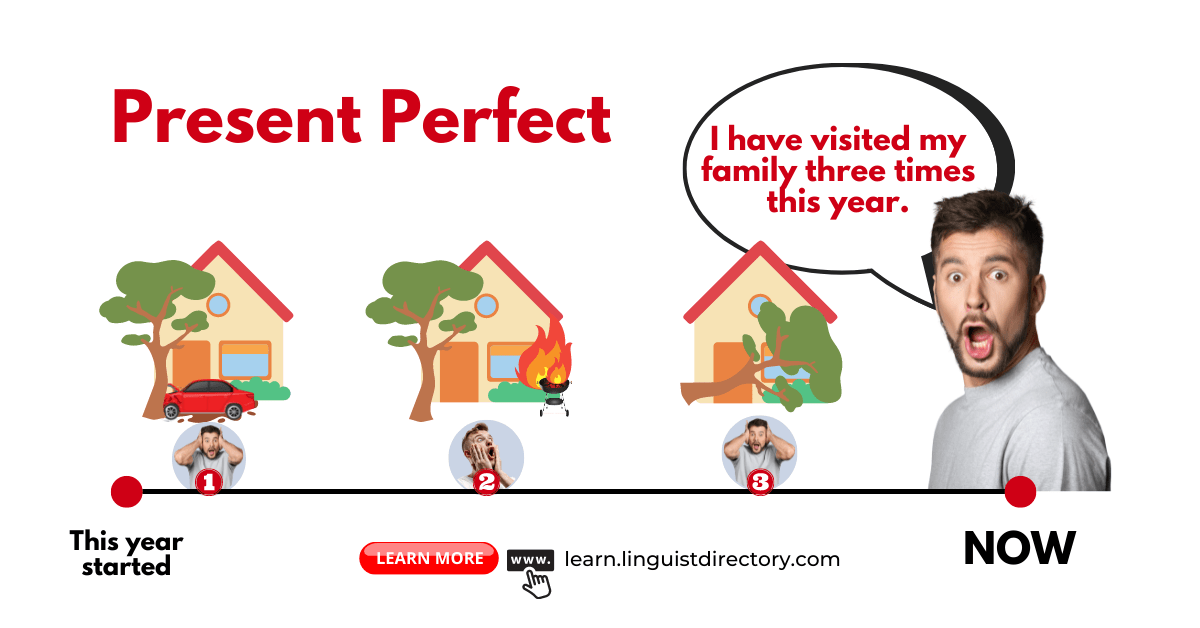 Present Perfect Simple
Present Perfect Simple
We use the present perfect simple tense to talk about actions that have a link to the present. The actions may be finished or unfinished.
✅I have visited my family three times this year.
This sounds complicated, but it’s easier than you think!
The rules below are for UK English. In the US, people often use the past simple when the action is finished.
We use the present perfect:
- 1️⃣to talk about something that happened in the same time period as now (e.g. this month, today, this year, this morning…),
✅ I’ve tidied the kitchen today. (It’s still today)
✅ Jamel hasn’t come to see me this afternoon. (It’s still the afternoon)
✅ Have you been on holiday this year?
Remember!
If the time period has finished, use a different tense.
❌ I’ve played football yesterday. (It’s not yesterday now!)
- 2️⃣to talk about events that happened recently and affect us now. We don’t usually say when it happened,
✅ I’ve booked my plane tickets. (I have plane tickets now)
✅ She’s lost her phone, so she can’t call. (She doesn’t have her phone now)
✅ Sorry! We’ve eaten the last biscuits. (There aren’t any left now)
- 3️⃣to say what we have done in our lives,
✅ I have been to the zoo. (In my life)
✅ Sarah hasn’t been to an aquarium.
- 4️⃣to talk about something that happened in a time period that started in the past and continues now,
✅ My friend Anne has been a professional actor since she was 3 years old! (She was an actor then and she still is an actor now).
✅ Have you seen Huda recently? (From an unspecified time in the past until now).
- 5️⃣to give someone news about something that happened recently,
✅ He has bought a new house!
✅ My uncle has fixed the TV, so we can watch it now.
- 6️⃣with yet, already, just.
✅ I’ve just seen a giant bee!
✅ Have you already eaten or would you like dinner?
How to form the present perfect simple
Subject + have/has + past participle
Example:
✅I have visited my family.
✅You have visited your family. (Singular)
✅He has visited his family.
✅Shee has visited her family.
✅We have visited our family.
✅You have visited your family. (Plural)
✅They have visited their family.
Remember! We usually use contractions when we speak and when we write informally.
Examples:
✅I have -> I’ve
✅You have -> you’ve
✅She has -> She’s*
✅We have -> we’ve
✅They have -> they’ve
*Not to be confused with she is
